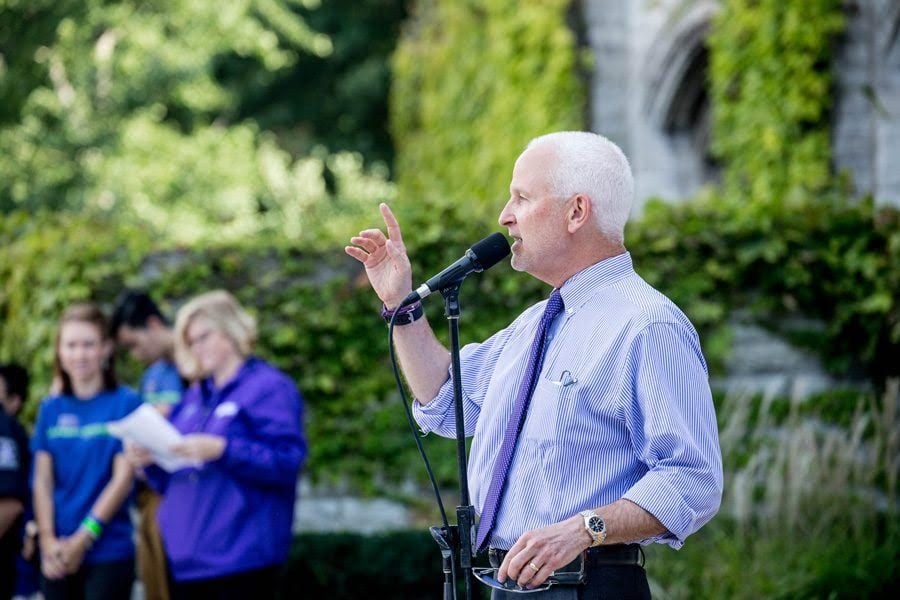Schapiro co-authors op-ed stressing importance of interdisciplinary education
Daily file photo by Zack Laurence
University President Morton Schapiro speaks at an event in September 2016. Schapiro penned an op-ed with Barry Glassner that stressed the importance of encouraging interdisciplinary education and creative thinking.
March 5, 2018
In a Sunday op-ed for The Chronicle of Higher Education, University President Morton Schapiro defended the need for both technical and cultural courses in preparing students for the modern world.
Schapiro, along with co-author Barry Glassner — a professor and former president at Lewis & Clark College — stressed the importance of producing graduates who are culturally aware and have interdisciplinary skills.
“With labor markets transforming before our eyes and automation and offshoring ever more common, higher education needs to equip students with both technical expertise and cultural competency,” they wrote. “Graduates will need both of those to thrive, not just early in their work lives, but over the long, unsteady haul they can expect to face.”
Schapiro and Glassner encouraged colleges to push for more professors with joint appointments and more students with multiple majors. In leading the charge toward more interdisciplinary education, they wrote, small research universities and liberal arts colleges might be best equipped because faculty members are connected to others outside their own departments.
Within the Weinberg College of Arts and Sciences, more than 30 percent of students complete a double major, according to the school’s website.
The authors also emphasized that students should be culturally literate and creative in order to stay competitive in an “evolving labor market.” The op-ed pointed to Northwestern’s first-year engineering course, “Design Thinking and Communication,” as an example of a program that pushes students to use “whole brain engineering” and employ their creativity in coming up with solutions.
Without creativity, the authors wrote, graduates are subject to being replaced by a “less costly alternative.” Students should try to take courses that will inform not only their technical skills, but also cultivate their creative thinking and cultural awareness — like global literature or improvisational acting.
“The fix for higher education is neither to turn colleges into quasi trade schools, nor to repackage the liberal arts, but to afford students the tools and humility they need to educate themselves for a lifetime,” Schapiro and Glassner said.
Email: [email protected]
Twitter: @madsburk


